- Home
- About WVN
-
WVN Issues
- Vol. 1 No. 1 (Oct. 2017) >
- Vol. 2 No. 1 (Feb. 2018) >
- Vol. 2 No. 2 (Jun. 2018) >
- Vol. 2 No. 3 (Oct. 2018) >
- Vol. 3 No. 1 (Feb. 2019) >
- Vol. 3 No. 2 (Jun. 2019) >
- Vol. 3 No. 3 (Oct. 2019) >
- Vol. 4 No. 1 (Feb. 2020) >
- Vol. 4 No. 2 (Jun. 2020) >
- Vol. 4 No. 3 (Oct. 2020) >
- Vol. 5 No. 1 (Feb. 2021) >
- Vol. 5 No. 2 (Jun. 2021) >
- Vol. 5 No. 3 (Oct. 2021) >
- Vol. 6 No. 1 (Feb. 2022) >
- Vol. 6 No. 2 (Jun. 2022) >
- Vol. 6 No. 3 (Oct. 2022) >
- Vol. 7 No. 1 (Feb. 2023) >
- Vol. 7 No. 2 (Jun. 2023) >
- Vol. 7 No. 3 (Oct. 2023) >
- Vol. 8 No. 1 (Feb. 2024) >
-
Events
- CIES 2023, Feb. 14-22, Washington D.C., USA
- ICES 4th National Conference, Tel Aviv University, Israel, 20 June 2021
- 2022 Virtual Conference of CESHK, 18-19 March 2022
- ISCEST Nigeria 7th Annual International Conference, 30 Nov.-3 Dec. 2020
- 3rd WCCES Symposium (Virtually through Zoom) 25-27 Nov. 2020
- CESA 12th Biennial Conference, Kathmandu, Nepal, 26-28 Sept. 2020
- CESI 10th International Conference, New Delhi, India, 9-11 Dec. 2019
- SOMEC Forum, Mexico City, 13 Nov. 2018
- WCCES Symposium, Geneva, 14-15 Jan. 2019
- 54th EC Meeting, Geneva, Switzerland, 14 Jan. 2019
- XVII World Congress of Comparative Education Societies, Cancún, Mexico, 20-24 May 2019
- ISCEST Nigeria 5th Annual Conference, 3-6 Dec. 2018
- CESI 9th International Conference, Vadodara, India, 14-16 Dec. 2018
- ICES 3rd National Conference, Ben-Gurion University, Israel, 17 Jan. 2019
- WCCES Retreat & EC Meeting, Johannesburg, 20-21 June 2018
- WCCES Symposium, Johannesburg, 21-22 June 2018
- 5th IOCES International Conference, 21-22 June 2018
- International Research Symposium, Sonepat, India, 11-12 Dec. 2017
- WCCES Info Session & Launch of Online Course on Practicing Nonviolence at CIES, 29 March 2018
- WCCES Leadership Meeting at CIES, 28 March 2018
- 52nd EC Meeting of WCCES, France, 10-11 Oct. 2017
- UIA Round Table Asia Pacific, Chiang Mai, Thailand, 21-22 Sept. 2017
- Online Courses
|
Introduction In response to the ongoing global reforms in the education sector and overall technological development of the society, teachers should teach mathematics as a main subject to enhance the national set goals. Froebel (1826) described the importance of activity-based teaching method as “Activities and playing are the highest expression of human development in childhood." Research findings on effective mathematics teaching focus on instruction that promote student's involvement in activity-based learning, which has been found to be more suitable than the other teaching methods. In addition, recent primary education reforms of Sri Lanka emphasize that teaching should be done through activity-based teaching methods (primary mathematics teacher guide, 2015). This is based on the hypothesis that activity-based teaching methods will help to increase the interest of students and improve their academic performance in mathematics. Therefore in Sri Lanka, primary mathematics teachers are being requested to embrace activity-based teaching methods such as play-based learning methods. Research background In 1997, I was appointed as a mathematics teacher by the Ministry of Education in Sri Lanka. In 2008, I joined the Teacher Educator Service as a lecturer. I am now working as a mathematics lecturer in Amarasuriya Teachers Training College, Galle, Sri Lanka. As a teacher educator, I was disappointed to find that only 14% of primary mathematics teacher trainees of Amarasuriya teachers training college, implemented activity-based teaching methods during the teaching practice period. Two questions need to be therefore answered:
This background inspired me to implement an action research in order to improve the implementation of activity-based teaching methods in the teaching-learning process in key stage 2 (Grade 3 and 4) class rooms. This study is important as its findings will help to plan for the effective use of this model pedagogy of teaching primary mathematics in Sri Lanka. Also, it will be helpful for students to learn mathematics in a better way within the collaborative context, while promoting knowledge, aptitude and skills in primary classrooms. Research objectives The purpose of this paper is to conduct an action research on activity-based teaching methods used by teacher trainers of teacher’s training college of Sri Lanka. The following objectives were established and achieved in this study: * To examine the perceptions of primary mathematics teacher trainees on the use of activity based teaching methods * To establish an instructional model for creating activities in activity based learning * To improve the implementation of activity-based teaching methods in the teaching-learning process in key stage 2 Literature review Activity-based learning as the name suggests is a process whereby students actively engaged in the learning process rather than just sitting and listening to the lesson. It is based on the core premise that learning should be based on doing some hands-on experiments and discussion, practical activities, analysis and evaluation of the topic under discussion (Azuka, 2013). The models of activity-based learning suggest that all learning activities involve some kind of learners’ experiences which emphasizes observing and doing (Kathleen, 1996). According to Kathleen (1996) the idea of active learning is based on the premise that students learn best when they are actively involved in the teaching-learning process. Also, activity-based learning derives from two basic assumptions.: (1) that learning is by nature an active endeavor, and (2) that different people learn in different ways. According to the literature review, characteristics of activity based learning could be identified as follows (Bonwel and Eison, 1991):
Emaiku (2012) stated that activity-based learning offers so many benefits for both teachers and primary students, for example, they reinforce course content, develop team building skills, enhance learners self-esteem, promote participatory learning, allow for opportunities for problem solving, promote the concept of discovery learning, strengthen learner's bond, help in practical application of course content, enhance communication with diverse learning, prepare an enjoyable/ exciting learning environment. Most importantly, in activity-based learning both the teachers and students are active in the teaching-learning processes. Activity-based learning is a student-centered learning method, however teachers should be highly prepared for this teaching environment. In the Sri Lankan context, Magomoni (2011) recommended that primary teachers should be provided guidelines in the teacher's guide of primary education, as they do not have awareness of activity-based teaching methods. It encouraged me to undertake this action research. Methodology This research is an action research deploying both quantitative and qualitative methods. The purpose of using a combination of methods was to make the scope of research wider, with the idea of balancing the shortcomings of each approach. A purposive sampling technique was used to select 45 primary mathematics teachers trainees in Amarasuriya teachers’ training College, Galle. Fig. 1: Sample size categorized in gender Data was gathered during August 2017 to January 2018 through questionnaire, informal interviews, and a reflective journal. In the first phase, basic data relating to the perceptions of teacher trainees on the use of activity-based teaching methods was gathered using a survey questionnaire. Before data collection, this questionnaire was validated with 10 students. The questionnaire was further improved by addressing the issues uncovered during the validation exercise and then, it was administered to the sample of 45 primary mathematics teacher trainees in a primary mathematics course. The questionnaire consisted of two parts: The first part captured the general information, while the second part comprised of an attitudinal scale with 25 questions. The first intervention was done with basic data gathered from the results of the questionnaire and it was planned to address the first two problems encountered in attitudinal scale in questionnaire. As the first intervention, group discussions were conducted with the sample on activity-based teaching methods. A presentation was also made on the possibility of using activity-based teaching method as one of the enjoyable teaching methods. After the first intervention, focus group interviews were conducted during which the sample participants were advised to maintain reflective journals for assessing their knowledge and attitude about activity-based teaching by themselves. Finally, with my support, the teacher trainees collectively worked in groups and designed group activities to teach the selected four basic concepts on primary mathematics in key stage 2. In the second intervention, eight teacher trainees were selected from the sample and trained to implement the designed activities in a real classroom setting. As a result of the second intervention, it was decided to identify the activities which are difficult to be implemented in the classroom, and to conduct them in the open environment. Picture Set 1: The second intervention - teachers using activity-based teaching with students in the classroom The third and final intervention was carried out on the basis of the outcomes of the second intervention. Activities were implemented with fewer number of students of grade three in the open environment. The responses of the classroom students were captured using a picture-mode questionnaire. Picture Set 2: The third intervention - activity-based teaching methods implemented in the open environment Results and discussion According to the teacher trainees' responses to the questionnaire in the base line survey, 42% of the sample have a narrow view of activity-based learning methods while 77% disagreed that they have skills on using activity-based teaching methods. It was revealed that 72% of sample was of the view that they have difficulties in the classroom and 72.3% of the sample agreed that many teachers in schools do not use activity-based teaching methods. However, 87% of teacher trainees agreed that activity-based learning methods can give students a sense of participation. Figure 2: Attitudes of teacher trainees on activity-based learning methods As shown in figure 2, 86.6% respondents are of the view that activity-based learning methods enhance the retention and recall of mathematics concepts by students. and 84.4% of the teacher trainees agree that activity-based teaching methods help to improve classroom interaction. However, 60% of the sample indicated the time allocated for mathematics is not enough for activity-based learning in their school.
During the informal Interviews, 82% of teacher trainees said that they don’t have the knowledge to implement activity-based teaching methods in primary mathematics. It was found that teacher trainees had a positive attitude toward activity-based teaching methods but it was evident that they were experiencing difficulty in conducting activity-based teaching methods in praxis. Taking these problems into consideration, an intervention plan was developed and the first intervention was implemented. By the end of first intervention with reflective journals, it was found that teacher trainees now had sufficient knowledge of activity-based teaching methods. They decided to introduce three factors: physical exercise, correct mathematical concept and pleasure in activity-based learning, especially in primary mathematics. It was subsequently named as the "three domain model". In the second intervention, under the three domain model, the teacher trainees designed eight group activities on four basic concepts selected on primary mathematics curriculum in key stage 2. These activities were tried out with 45 students of grade three in the selected school. It was revealed that 75% of the prepared activities could not be implemented in the classroom due to insufficient space for interaction with each student. The study found that the major problems in the use of activity-based teaching methods in the classroom are lack of instructional materials and resources due to high number (about 45) of students in the classroom. In addition, the time allocation for each period was not sufficient to carry out activity-based teaching-learning process. As a result of these reflections, it was decided to rearrange some activities so that they may be implemented in the open environment of the selected school for a random sample of 30 students of grade three. After the third intervention, 100% of the students opined that they learned enthusiastically under activity-based learning and also 100% of the teacher trainees in the sample expressed that they expected to use activity-based teaching methods in next teaching practice period. At the end of these interventions, teacher trainees were engaged in block teaching (teaching practice) period and it was found that 92% of the teacher trainees showed keen interest in the implementation of activity-based teaching methods learned through this action research. Conclusion The study found that only 42% of the teacher trainers know about activity based teaching. Therefore, it was obvious that 58% of the sample have a narrow view of activity-based learning methods. 77% disagreed that they had skills on using activity-based teaching methods. It was revealed that 72% of sample was of the view that they have difficulties in the classroom to use activity-based teaching methods and also, 72.3% of the sample agreed that many teachers in schools do not use activity-based teaching methods. It could be concluded that many primary teachers in Sri Lankan schools do not use activity-based teaching methods in schools. However, 87% of the sample agreed that activity-based teaching methods can give students a sense of participation and collaborative learning. Also, 84.4% of the teacher trainees agreed to use activity-based teaching methods as these are helpful in improving classroom interaction. This outcome is very encouraging as it will help in improving the activity-based teaching and learning process of primary mathematics in schools. In addition, 60% of the sample indicated that time allocated for primary mathematics period is not enough for activity-based learning in their school. 82% of teacher trainees said that they don’t have skills and knowledge to implement activity-based teaching methods in primary mathematics. While considering the above results, it is clear that most of the teacher trainees do not use activity-based teaching methods due to their lack of clear understanding, insufficient skills and difficulties in classroom. Nevertheless, by improving the knowledge and positive attitude about activity-based teaching methods with thorough discussion and video presentation, they can be directed to use activity-based teaching methods. Therefore, it is imperative to create activities for teaching primary mathematics concepts based on the three dimensional model comprising of three factors viz. physical exercises, correct mathematical concepts, and pleasure. Recommendations The following recommendations are made as a result of this action research: 1. To reform primary mathematics curriculum of teachers training colleges, it is imperative to improve the awareness and knowledge of teacher trainees in activity-based teaching methods 2. Workshops and seminars should be organized for the training and re-training of teachers on using activity-based teaching methods in mathematics classes 3. Activities related to primary mathematics should be created under the three domain model comprising of physical exercises, correct mathematical concepts, and pleasure 4. Every school should be provided with an open primary mathematics laboratory with sufficient space, all necessary materials, and equipment for the use of activity-based teaching 5.. Primary mathematics should have periods with enough time allocation to accommodate the use of activity-based teaching in the classroom 6. It is also recommended to get the service of an extra teacher to support the primary mathematics teacher in implementing activity-based teaching-learning process in the classroom References Azuka, B.F. (2013). Attitude of secondary school mathematics teachers towards the teaching of school mathematics in Nigeria. Journal Mathematical Sciences Education, 2(1), pp 181-191 Azuka, B.F. (2013b). Activity- based learning strategies in the mathematics classrooms. Journal of Education and Practice, 4(13), 2013, pp 8-14 Bonwell, C & Eison, J. (1991). Active learning: creating excitement in the classroom ASHE – ERIC Higher Education Report. Retrieved from www.oid.ucla.edu/../active. learning-eric on 27th Sep 2017 Dagnew, A. (2011). Attitude of teachers towards the use of active learning methods. Retrieved February 5, 2013 from Vetrieducational.com/wp-content/uploads/2011/12/Journal-Volume-No.4 David, D. , Okwuoza, S. (2013). .International Journal of Education Learning and Development. Vol.1, No.1, pp.22-36, September 2013.Published by European Centre for Research Training and Development UK Kathleen, M. (1996). Active learning. Retrieved on Sep 27, 2017, from http/www.worldcat.org/…/icon-n88-191822 Magomani, W.(2011). Activity based learning process in curriculum of primary mathematics. Dept. of Education University of Colombo. Colombo Priya, Y. (2015). Effect of Using Activity Based Teaching on Achievement of Students in Mathematics at Primary Level. International Journal of Advanced Research in Education & Technology (IJARET) Vol. Dept. of Education. University of Rajasthan. India Primary Mathematics teacher guide ( 2015) . National education institute. Maharagama. Sri Lanka Sannino, A., and Daniels, H.(2007). Collaborative Learning in Mathematics. Malcolm Swan Shell Centre for Mathematics Education School of Education. University of Nottingham press. Wood, E. (2010). Developing integrated pedagogical approaches to play and learning in the early years. London: Sage Publications.
8 Comments
I.S.K..Eriyagama(Lecturer)
6/14/2018 11:40:21 pm
This is an action research . So that I think, the figures should be display comparatively
Reply
5/8/2019 10:40:37 pm
Hello,
Reply
8/20/2019 03:00:47 am
Very impressive contents ,Ginger Lab also implementing ABL in primary schools with science subject for increasing their creativity and innovations through classroom experiences with Activity box.
Reply
Ashely
6/17/2020 12:58:49 pm
Super article. I am keen to learn about activity based teaching and learning for high school. I have started to experiment with it and keen to learn more.
Reply
9/19/2021 03:30:05 am
Excellent job of a novice lecturer showing high level of intellectual ability about modern teaching and learning in our country and the world
Reply
D M Thilakarathne
3/14/2024 03:06:52 am
This education method very best of the most of childs in sri lanka.
Reply
Leave a Reply. |
- Home
- About WVN
-
WVN Issues
- Vol. 1 No. 1 (Oct. 2017) >
- Vol. 2 No. 1 (Feb. 2018) >
- Vol. 2 No. 2 (Jun. 2018) >
- Vol. 2 No. 3 (Oct. 2018) >
- Vol. 3 No. 1 (Feb. 2019) >
- Vol. 3 No. 2 (Jun. 2019) >
- Vol. 3 No. 3 (Oct. 2019) >
- Vol. 4 No. 1 (Feb. 2020) >
- Vol. 4 No. 2 (Jun. 2020) >
- Vol. 4 No. 3 (Oct. 2020) >
- Vol. 5 No. 1 (Feb. 2021) >
- Vol. 5 No. 2 (Jun. 2021) >
- Vol. 5 No. 3 (Oct. 2021) >
- Vol. 6 No. 1 (Feb. 2022) >
- Vol. 6 No. 2 (Jun. 2022) >
- Vol. 6 No. 3 (Oct. 2022) >
- Vol. 7 No. 1 (Feb. 2023) >
- Vol. 7 No. 2 (Jun. 2023) >
- Vol. 7 No. 3 (Oct. 2023) >
- Vol. 8 No. 1 (Feb. 2024) >
-
Events
- CIES 2023, Feb. 14-22, Washington D.C., USA
- ICES 4th National Conference, Tel Aviv University, Israel, 20 June 2021
- 2022 Virtual Conference of CESHK, 18-19 March 2022
- ISCEST Nigeria 7th Annual International Conference, 30 Nov.-3 Dec. 2020
- 3rd WCCES Symposium (Virtually through Zoom) 25-27 Nov. 2020
- CESA 12th Biennial Conference, Kathmandu, Nepal, 26-28 Sept. 2020
- CESI 10th International Conference, New Delhi, India, 9-11 Dec. 2019
- SOMEC Forum, Mexico City, 13 Nov. 2018
- WCCES Symposium, Geneva, 14-15 Jan. 2019
- 54th EC Meeting, Geneva, Switzerland, 14 Jan. 2019
- XVII World Congress of Comparative Education Societies, Cancún, Mexico, 20-24 May 2019
- ISCEST Nigeria 5th Annual Conference, 3-6 Dec. 2018
- CESI 9th International Conference, Vadodara, India, 14-16 Dec. 2018
- ICES 3rd National Conference, Ben-Gurion University, Israel, 17 Jan. 2019
- WCCES Retreat & EC Meeting, Johannesburg, 20-21 June 2018
- WCCES Symposium, Johannesburg, 21-22 June 2018
- 5th IOCES International Conference, 21-22 June 2018
- International Research Symposium, Sonepat, India, 11-12 Dec. 2017
- WCCES Info Session & Launch of Online Course on Practicing Nonviolence at CIES, 29 March 2018
- WCCES Leadership Meeting at CIES, 28 March 2018
- 52nd EC Meeting of WCCES, France, 10-11 Oct. 2017
- UIA Round Table Asia Pacific, Chiang Mai, Thailand, 21-22 Sept. 2017
- Online Courses


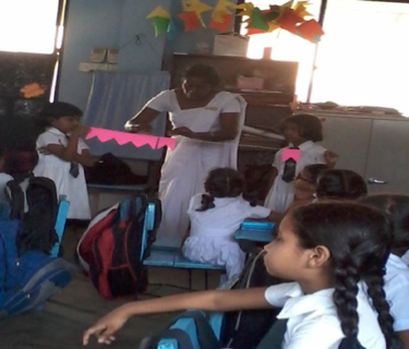
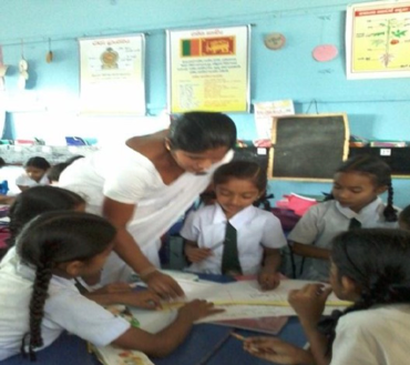
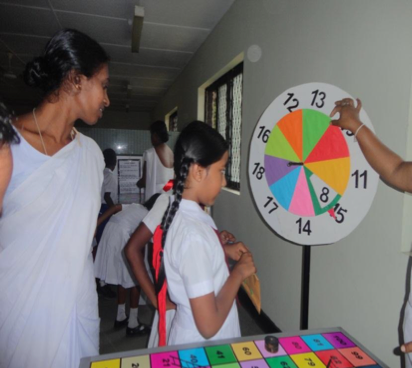
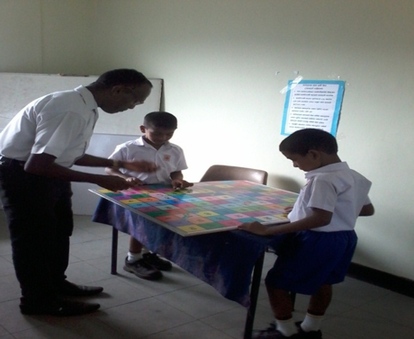
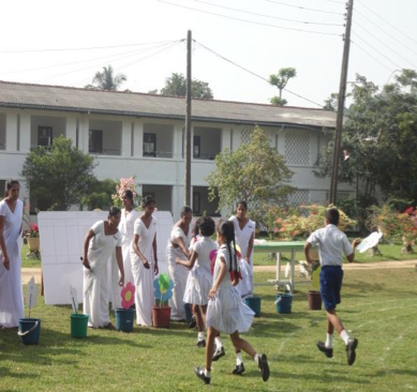
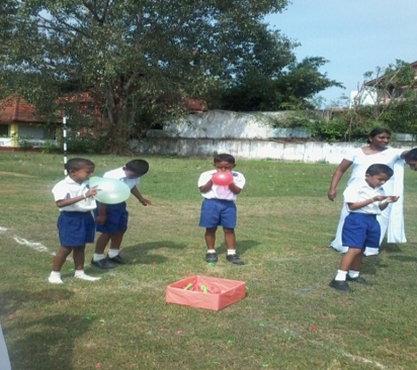
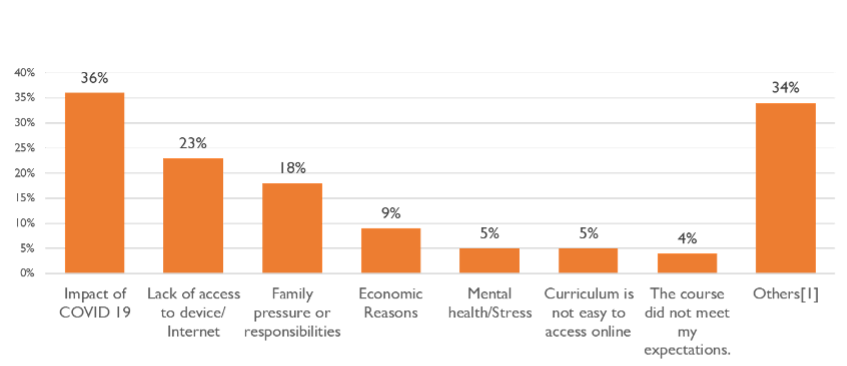
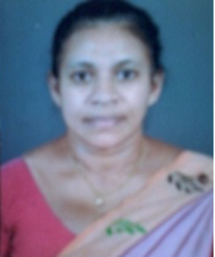
 RSS Feed
RSS Feed
